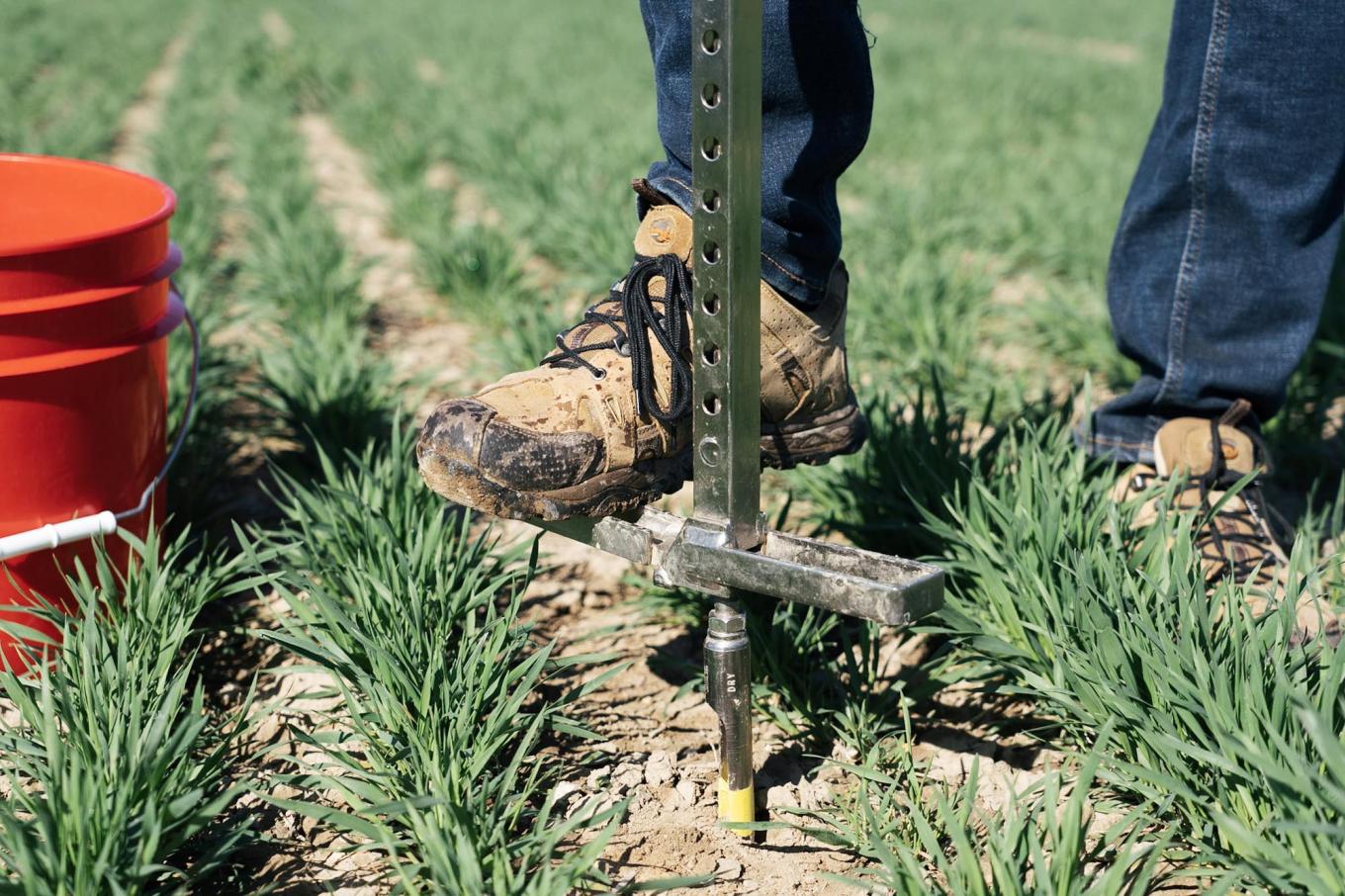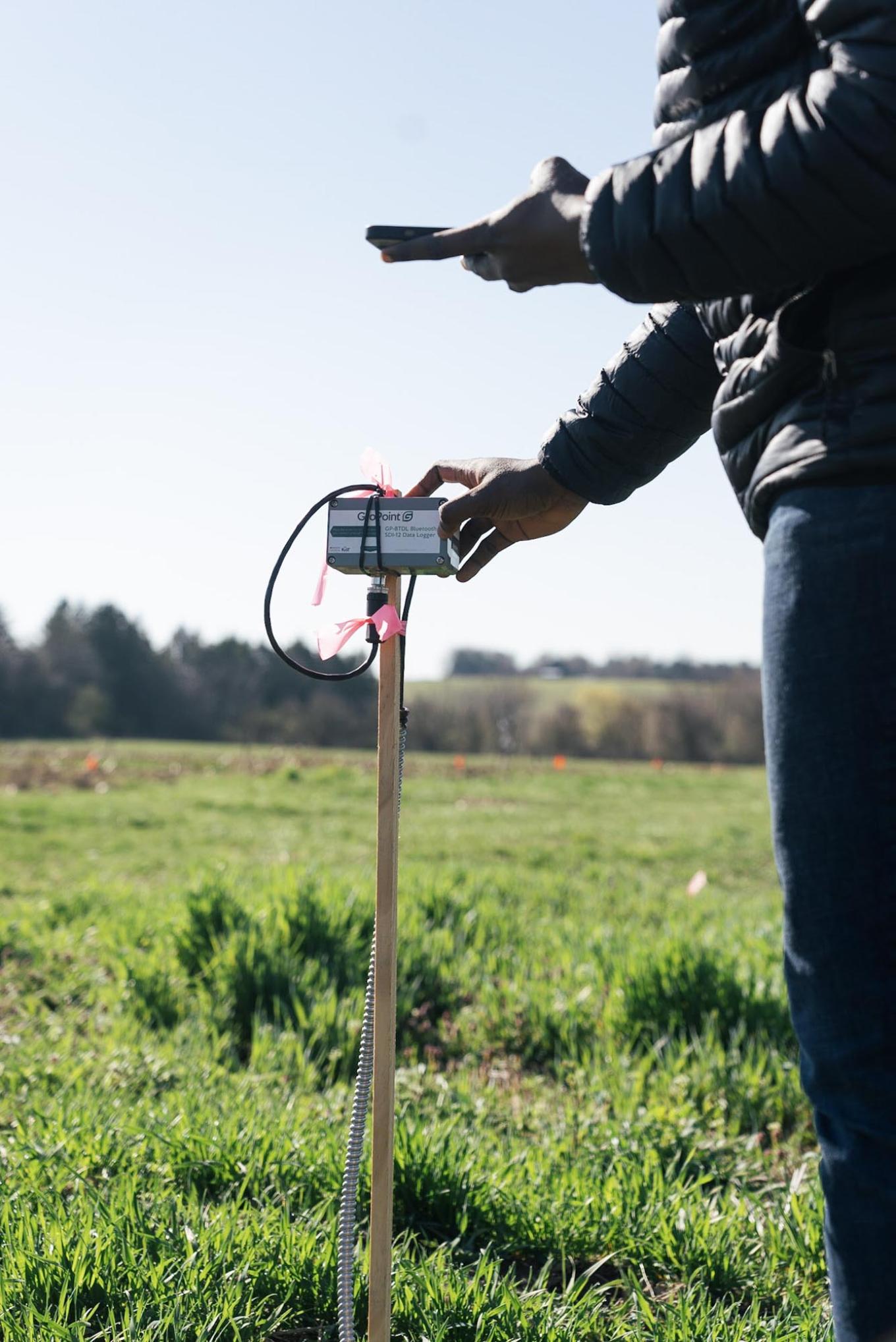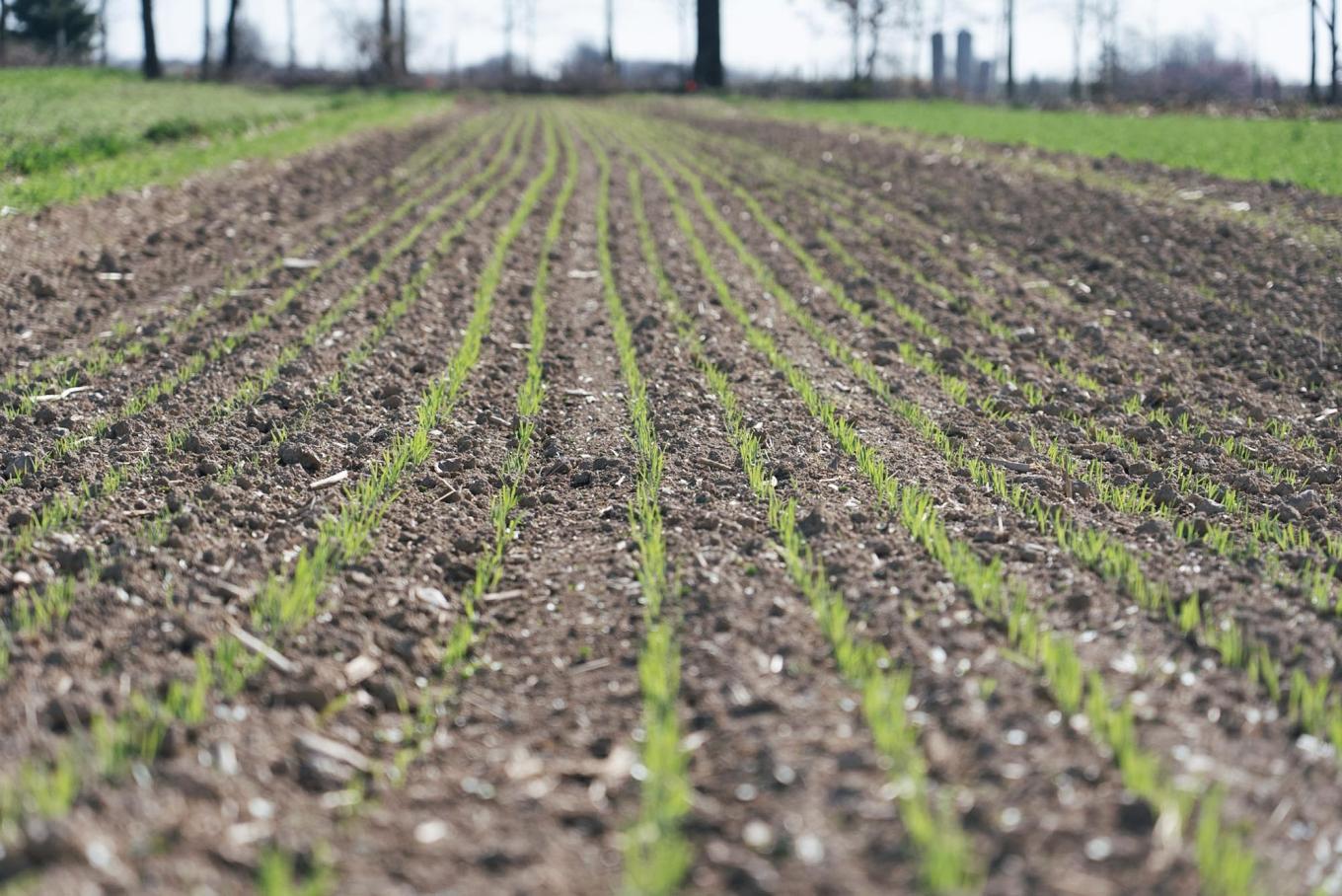
The Mad Agriculture Journal
The Landmark Research Trial for the Future of Organic Agriculture
Published on
June 19, 2023
Written by
CHLOE NOUVELLE, RODALE INSTITUTE
USDA Certified Organic has deep roots in Pennsylvania. Specifically, in the 72 research plots that make up the Farming Systems Trial (FST) at Rodale Institute.
The Trial, which began in 1981, applies real-world practices and rigorous scientific analysis to document the different impacts of organic and conventional grain cropping systems. It’s the longest running study of its kind in North America, older than many of the researchers who currently gather and analyze the data it produces, including lead researcher Philip Hinson.
Hinson is originally from Ghana and was drawn to study organic agriculture to help the country that raised him.
“We can’t feed ourselves in Ghana because our soils are highly degraded. We don’t produce enough food. So, we rely on imports,” said Hinson. “The idea behind getting into agriculture was to learn about the best ways to improve soil health and produce quality food so that I can help my home country become self-sufficient.”

A PhD program at Texas A&M University prompted Hinson to dive deep into studying organic wheat systems in the Southern Great Plains. That work in organic crop management laid the foundation for his postdoctoral research associate role with FST at Rodale Institute.
While Hinson has extensive experience in agronomy, he often speaks about the uniqueness of FST– its staggering scale and the indelible effect it has had on the American food system.
“Findings from the FST contributed significantly to organic food regulations in the United States,” said Hinson. “So, its impact over the years has been huge.”
It’s easy to be impressed by both the Trial’s legacy and its physical footprint.
When standing in its research fields, rows of plots stretch as far as the eye can see. And you can tell something important is happening here. Afterall, the land is broken up by a seemingly endless stream of neat and tidy rows, each marked with a small red flag.
Fair warning, we’re about to get “in the weeds” on the science behind the Trial.
You see, FST is designed to mimic the practices of farmers who raise the staples of the U.S. food supply: grains like corn, soybeans, oats, and wheat. Those crops are the focus of each system because 70 percent of U.S. acreage is devoted to growing grains. The Trial was also developed to assess how farmers’ practices impact farmlands and the communities around them. To study all of these things, the Trial compares three distinct farming systems: organic legume (with legumes as the nitrogen source for fertility), organic manure (with manure as the nitrogen source for fertility), and a conventional standard used by the majority of U.S. grain producers (with a synthetic as the nitrogen source for fertility and the utilization of pesticides). It should be said that all three systems in the Trial are dynamic and continue to change over time to incorporate the latest technologies and practices.
FST was also developed to track the impact of different practices on a farm’s economic viability, energy usage, nutritional quality of the food produced, health of the soil and the water that flows through the systems, and the impact of these practices on the environment.

As you can imagine, Hinson’s days are full of data collection and monitoring. But his work isn’t abstract. It helps farmers in almost-real time.
“The research that comes out of FST doesn’t just end up in scientific papers. We learn the best management practices for organic production and then farmers put it into practice” said Hinson.
The Trial recently produced its 40-year report. And the results indicate that organic farming systems match or outperform conventional production in yield while providing higher crop yields (up to 40 % higher) than conventional systems during periods of drought or flood. These are critical findings as farmers around the world battle extreme weather.
“FST data has shown that soil organic matter is higher in organic systems,” explained Hinson. “A percent increase in soil organic matter can hold up to 20,000 gallons of water per acre. That’s a rule of thumb we use in agriculture. And what we’ve found is organic systems, specifically the manure system, works like a sponge. It absorbs water when the environment is wet and holds onto moisture when the environment is dry.”
These findings indicate that regenerative organic agriculture may hold the key to securing the global food supply in the years to come.
The 2023 growing season will mark FST’s 43rd year of producing groundbreaking research. It’s safe to say researchers like Hinson will continue to build on FST’s long legacy of refining agricultural systems and improving farming practices worldwide.
Check out Rodale Institute’s complete Farming Systems Trial 40 Year Report.
